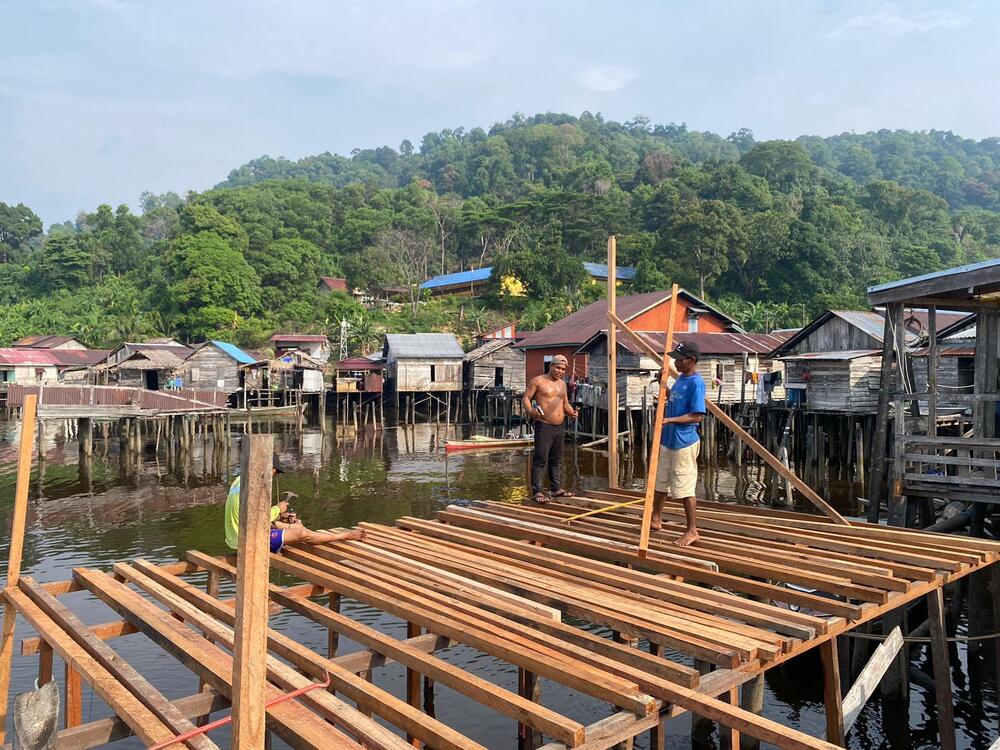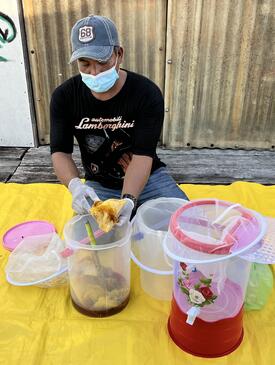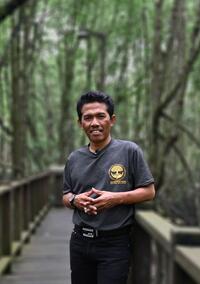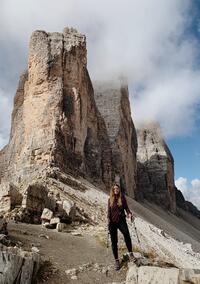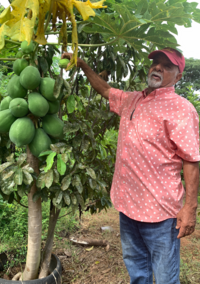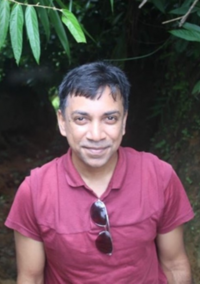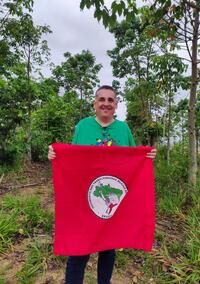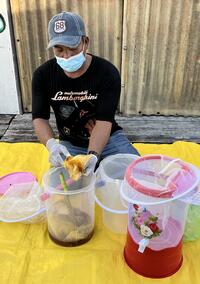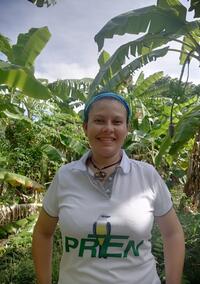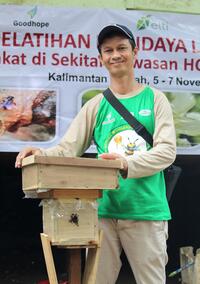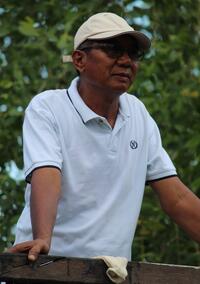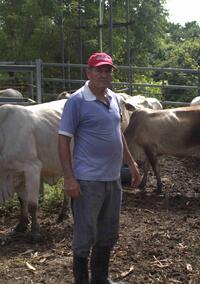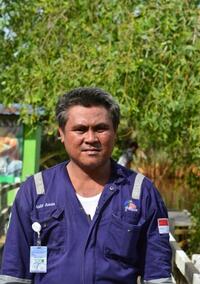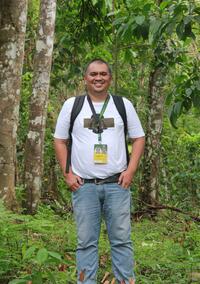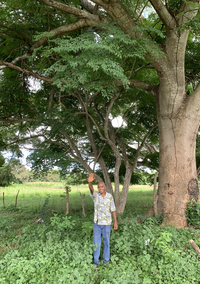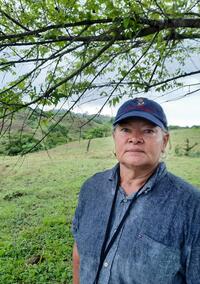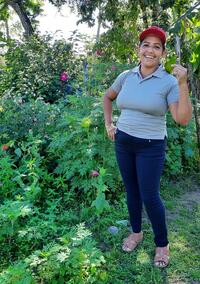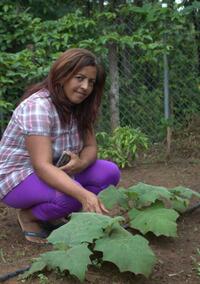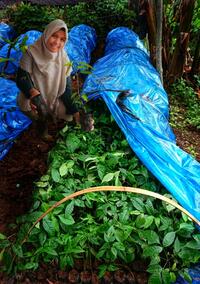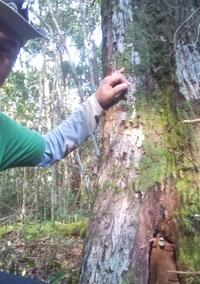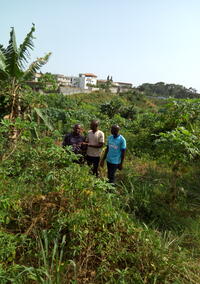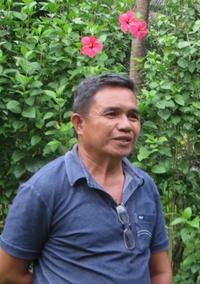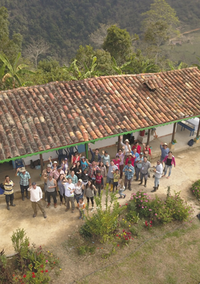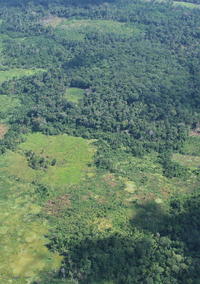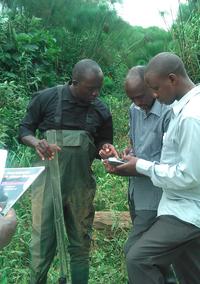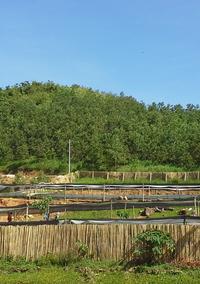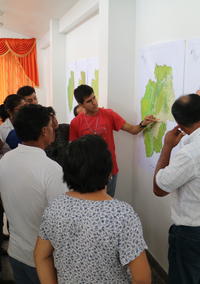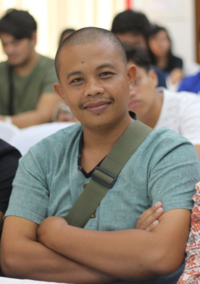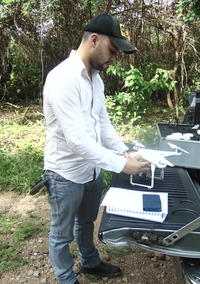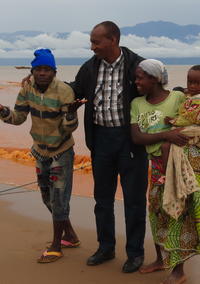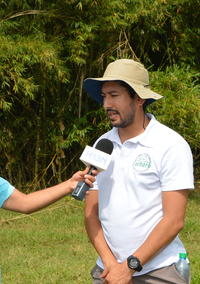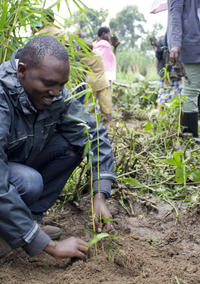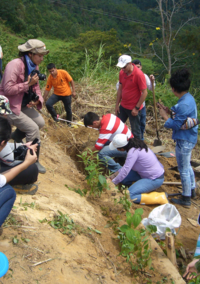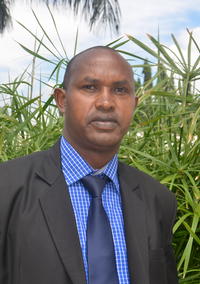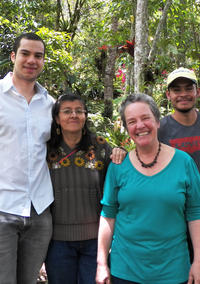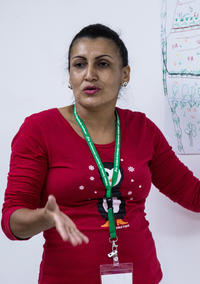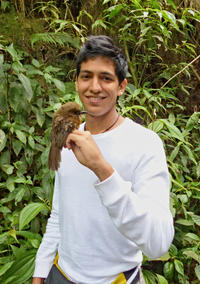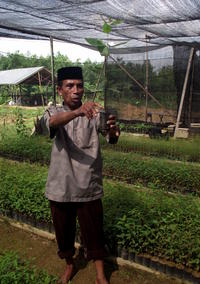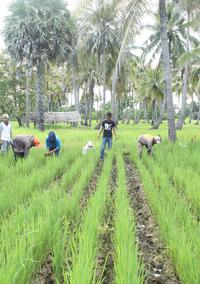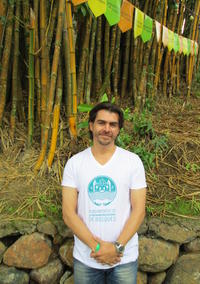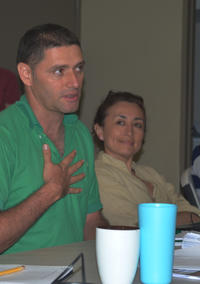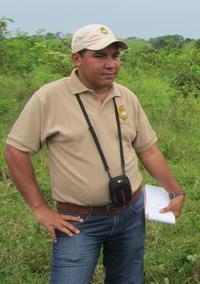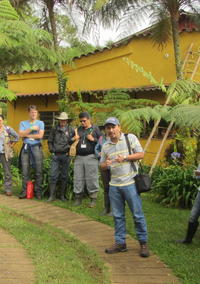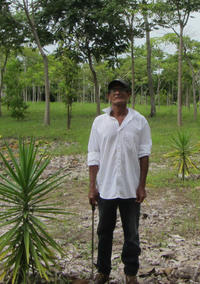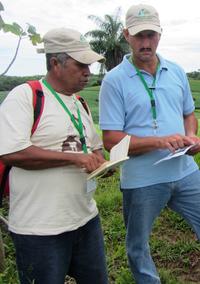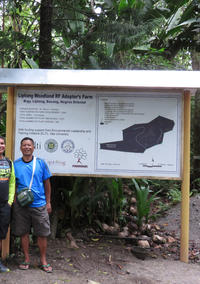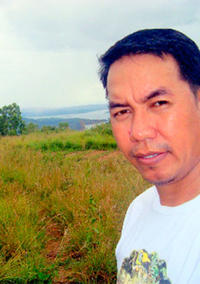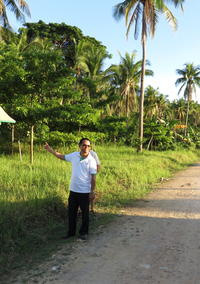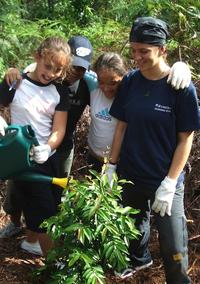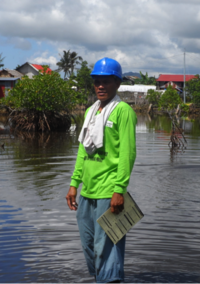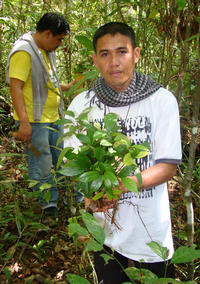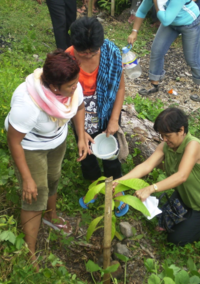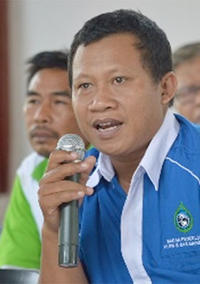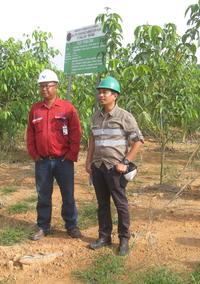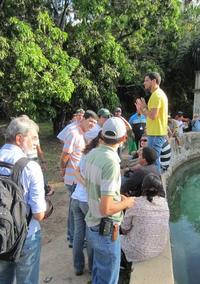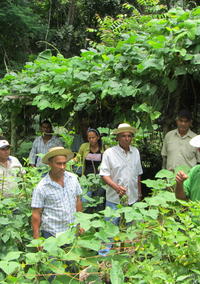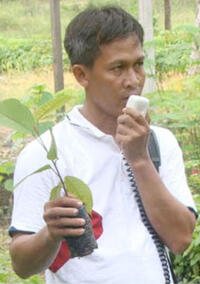You are here
Supporting Honey Production to Help Conserve Mangrove Forests
The village of Batu Ampar in West Kalimantan, Indonesia, obtained a Village Forest permit from the Ministry of Environment and Forestry (KLHK) in 2017 to manage 33,140 hectares of forestland. Batu Ampar’s Village Forest is categorized by KLHK as protection forest, meaning that only limited use is permitted. Wood cannot legally be harvested from protection forest areas. Sustainable management of the Village Forest, however, has been threatened by the fact that Batu Ampar community members who live in the coastal settlement area and generally work as fishermen depend on making charcoal from mangrove trees, which causes significant deforestation and forest degradation.
In August 2023, Blue Forests and Blue Forests-ELTI conducted a course titled “Sustainable Mangrove Honey Utilization.” The course aimed to reduce the community’s economic dependence on charcoal made from the mangroves by increasing their understanding of other benefits that can be derived from mangrove ecosystems, such as non-timber forest products (NTFP) like honey. During the course, participants attended lectures and field practice on harvesting mangrove forest honey, managing bee colonies, and processing the honey.
Suheri (who, like many Indonesians, has only one name) is an alumnus of the course who now works with ELTI to train others. Suheri is a small-scale fisherman and a honey harvester from Batu Ampar who leads the mangrove honey business unit in his village. During the “Sustainable Mangrove Honey Utilization” course, he shared his experience of harvesting honey which he has been doing for many years. He also emphasized the importance of health and safety while harvesting honey, such as using personal protective equipment and having access to first aid in case of work accidents. As part of his effort to scale up the village’s mangrove honey production, he worked with the business unit’s 13 other members to submit a proposal requesting support from the ELTI Leadership Program to build a mangrove honey production house in Batu Ampar. Blue Forests-ELTI approved the funding request. The production house will help scale up processing and packaging of the harvested honey as well as serve as a venue for meetings to better organize the members’ activities.
The main construction of the production house took place September 23–29, 2023. The business unit members continue to develop the production house with funds from other sources. Blue Forests and Blue Forests-ELTI will continue to support development of the business unit by facilitating product licensing and certification and by providing additional equipment funded through the Blue Action Fund and the International Climate Fund.
by Lely Puspitasari, updated February 6, 2024
The Blue Forests-ELTI Leadership Program is very useful and positive for our community living in coastal area. The communities can learn about the business potential of the non-timber forest products from mangrove honey. Because we need other livelihoods that are more sustainable than making mangrove charcoal.
Suheri
